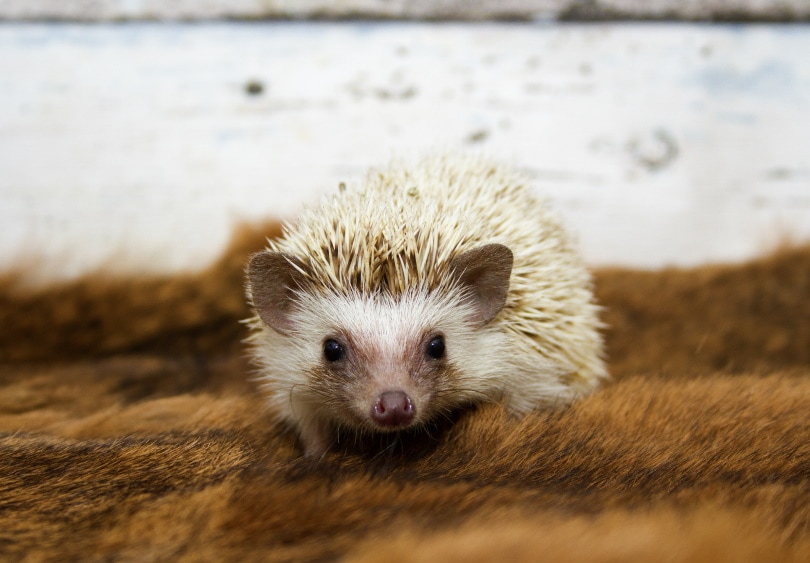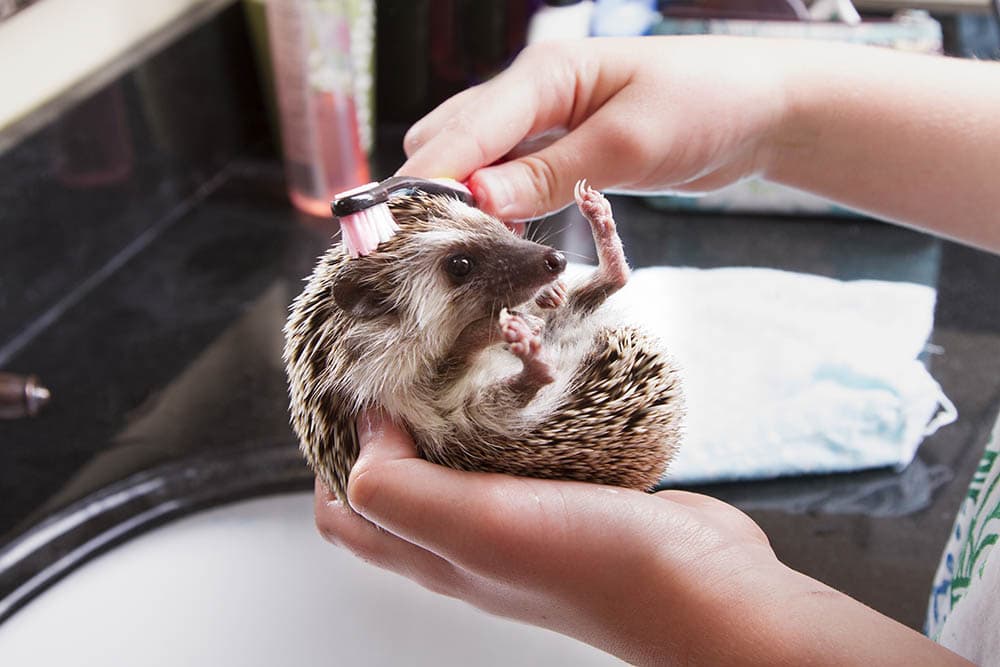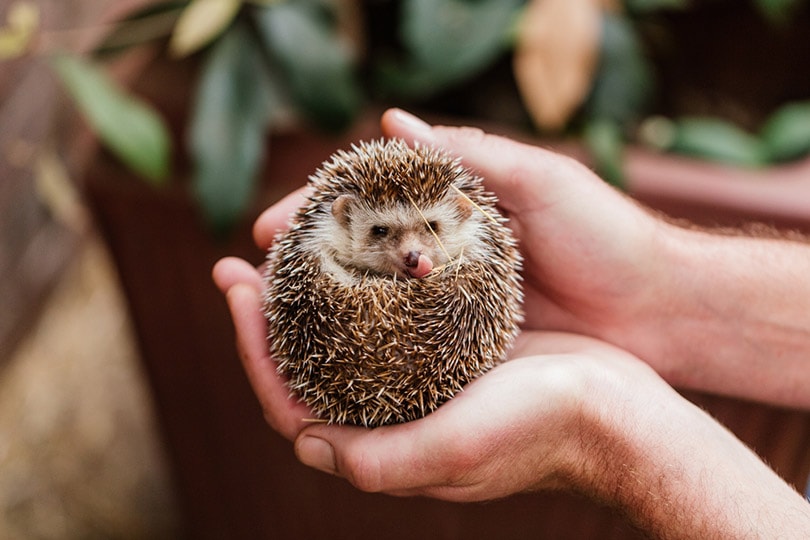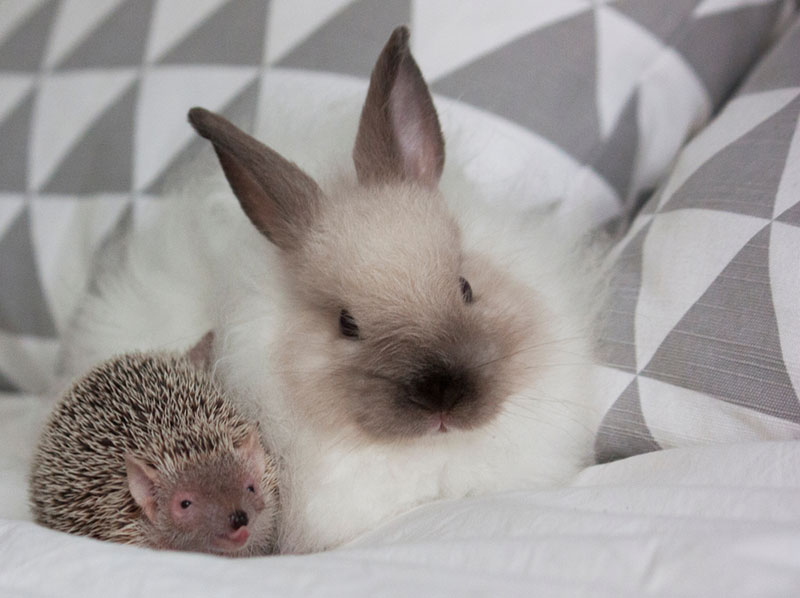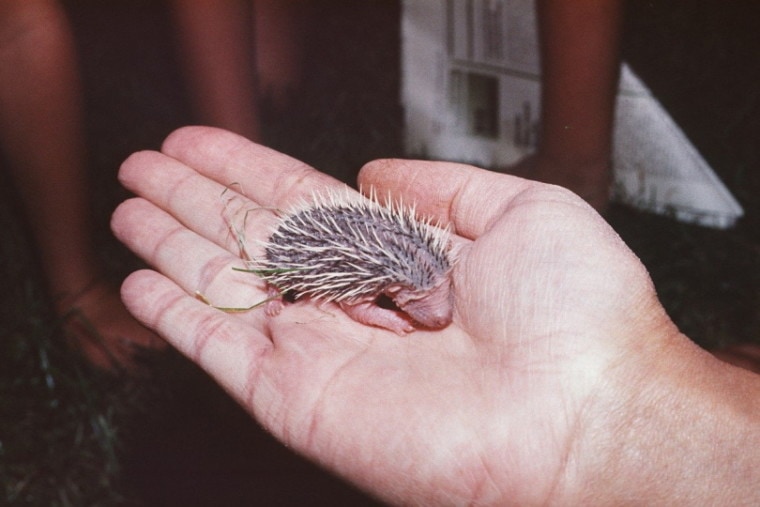
Since it’s not common practice to spay hedgehogs, it’s very possible for you to bring home a pregnant hedgehog. Hedgehogs reach sexual maturity as soon as 5 months old and can reproduce any time between April and September.
If you suspect that your hedgehog is pregnant or currently has a pregnant hedgehog, it’s vital to address their specific care needs. We’ll review essential information on identifying and caring for pregnant hedgehogs and answer common questions many hedgehog owners have about hedgehog litters, which usually have four to five babies.
How Many Babies Do Hedgehogs Have? (A Closer Look)
A baby hedgehog is called a hoglet. Hedgehogs typically have four to five hoglets in a litter, but they can have up to seven babies at a time. Although hedgehog litters average between four to five hoglets, usually only about two or three survive and live long enough to live independently from their mothers.
In the wild, the mating season takes place in the spring after hedgehogs awaken from hibernation. Pregnant hedgehogs have gestation periods that last about 35 days. Most hoglets are born between June and July.
Female hedgehogs usually have one litter per mating season. However, if they have their first litter relatively early in mating season, they can also have a second litter by late summer.
Unfortunately, hoglets in these second litters are less likely to survive because they’re born very close to hibernation season. Hedgehogs need time to gain weight to go into hibernation, and many young hoglets are still growing and don’t have time to bulk up in weight.
Therefore, hoglets of second litters need special care so that they can survive the winter season. They can’t hibernate, they’ll need extra food and attention so that they can live through the season.
What Do Hedgehogs Do When They Are Pregnant?
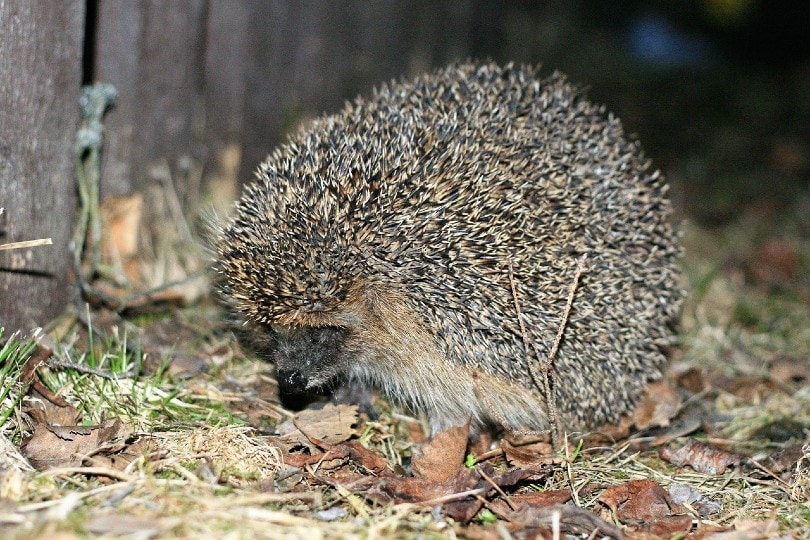
Female hedgehogs often show common signs when they’re pregnant. They’ll start looking for food more frequently and may even wake up to forage for food during the day. They’ll also have an increased appetite and might also have bigger stools.
Pregnant hedgehogs will also begin to gain more weight, and you’ll notice a rounder belly near the end of the gestation period. If you suspect that your hedgehog is pregnant, you can always start weighing them daily to see if there’s any weight gain.
Hedgehogs will also start to forage around for material to build a nest. You might see a pregnant hedgehog gathering bedding in a specific area of the enclosure as a means of preparing to give birth to her litter.
How Do You Know If a Hedgehog Is in Labor?
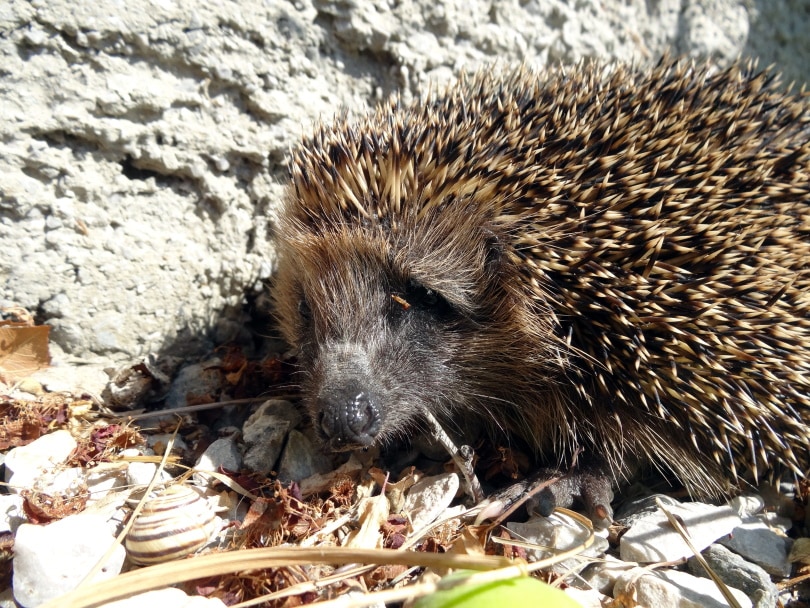
Hedgehogs that are nearing labor will start to show signs of tiredness and move lethargically. They may not be as playful, and the only activity they engage in is building their nest.
Hedgehogs may take certain positions right before they go into labor. They may lay on one side or their bellies. They can also have their back legs wide apart as they stand.
Hedgehogs going into labor might lick their genital area repeatedly to soothe labor pains. You may also see them shuddering or breathing heavily from labor contractions.
The birthing process can last from just a few minutes to a couple of hours, depending on the hedgehog and the litter size. Hoglets are born with white spikes, but they don’t scratch the mother because the hoglets have a protective layer of tissue surrounding them.
Once all the hoglets are born, the mother will eat the placenta and clean her babies by licking them.
It’s very important to leave the mother hedgehog alone during the labor process and after birth. Although it’s tempting to watch the process and care for your hedgehog, disturbing the mother can have serious consequences. When mother hedgehogs are under stress, they can end up rejecting their babies or even consuming them.
Therefore, leave your mother hedgehog and her babies alone for at least a week, and make sure that you don’t handle any of the hoglets.
How Do You Take Care of Baby Hedgehogs?

Usually, the mother hedgehog won’t need any help taking care of her babies. All you have to do is make sure that you quietly supply her with food and water and make sure that you don’t touch any of her babies. Your best bet is to be as unnoticeable as possible to help keep the mother hedgehog stress-free.
There are times when a hedgehog may reject one of her babies. These babies may get removed from the nesting area or don’t receive any feedings. Before you consider hand-raising this hoglet, try to nudge it back into the nest by using a spoon. Be careful to not have your own scent rub on the hoglet or else it will most likely discourage the mom from caring for the hoglet.
If the mother still rejects the hoglet, you may have to resort to hand-raising the baby hedgehog. Try your best to contact a hedgehog or exotic pet rescue agency if you suspect that you have a rejected hoglet. They can provide invaluable help because the chances of survival are very slim with hand-raising a hoglet.
A baby hedgehog needs food every 3-4 hours, so be prepared for several days or weeks of interrupted sleep. You can feed them warmed-up kitten formula or sheep’s milk with a small dropper.
Gently drop some milk or formula into the hoglet’s mouth. Sometimes, the formula may come out of its nose. This means that you have to slow down on feeding the hoglet so that it has time to swallow.
It’s crucial to let the hoglet have a bowel movement after eating. Use a wet and warm towel and rub the groin and anal area to help it relieve itself. Failure to do this will lead to a backed-up digestive system.
How Long Do Hedgehog Babies Stay With Their Mothers?
Hoglets typically stay with their mothers until they reach 6 weeks old. Once they reach 6 weeks of age, they’re capable of foraging and surviving on their own.
Until then, hoglets are very dependent on their mothers. They’re born with their eyes closed, and their eyes open up at around 13-24 days. They continue to suckle their mother’s milk for about 4-6 weeks.
At about 3 weeks, hoglets can start to transition to eating solid food. You might see the mother hedgehog chewing up food and feeding it to her babies. By 4 weeks, the hoglets are ready to leave the nest and explore the surrounding area with their mother.
After a couple of weeks of exploring, the young hedgehogs are ready to live on their own. You can safely separate these hedgehogs from their mother when they’re about 7 weeks old. Since hedgehogs are solitary animals, they’ll do best in their own spaces and enclosures when they get older.
Conclusion
Baby hedgehogs look helpless and defenseless when they’re born. However, their mother is often very capable of taking care of them on her own until they grow to maturity.
In some cases, a mother may reject her babies, especially if she has more in her litter than the average amount of four to five hoglets. If you have a rejected hoglet, make sure to safely remove them from the enclosure without touching them with your own hands.
Then, try to look for a pet rescue agency or another mother hedgehog that can foster it. If all else fails, you can start to raise the hoglet by hand.
Now that you know about pregnant hedgehogs and caring for them and their hoglets, you’re well on your way to providing the best care for baby hedgehogs. Overall, intervene only when you have to. Give your hedgehogs and hoglets enough space, and the hoglets will thrive and grow to become beloved pets for many other people.
Featured Image Credit: Jochen_Schaft, Pixabay


